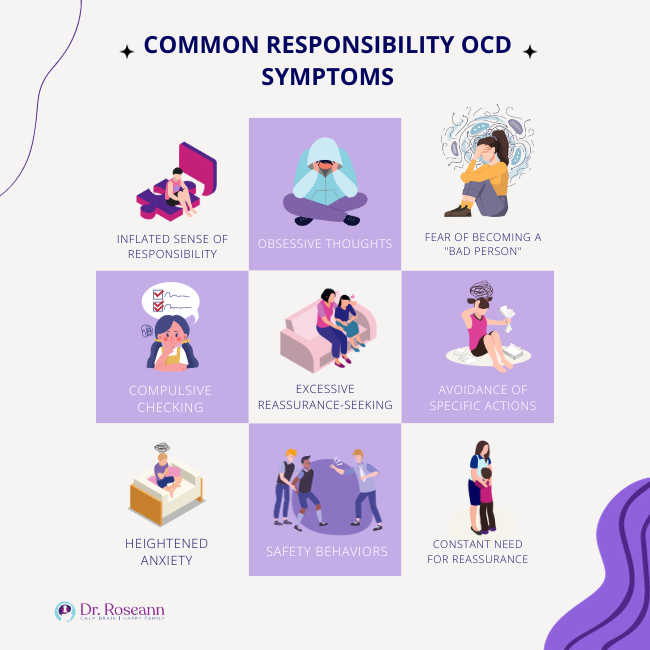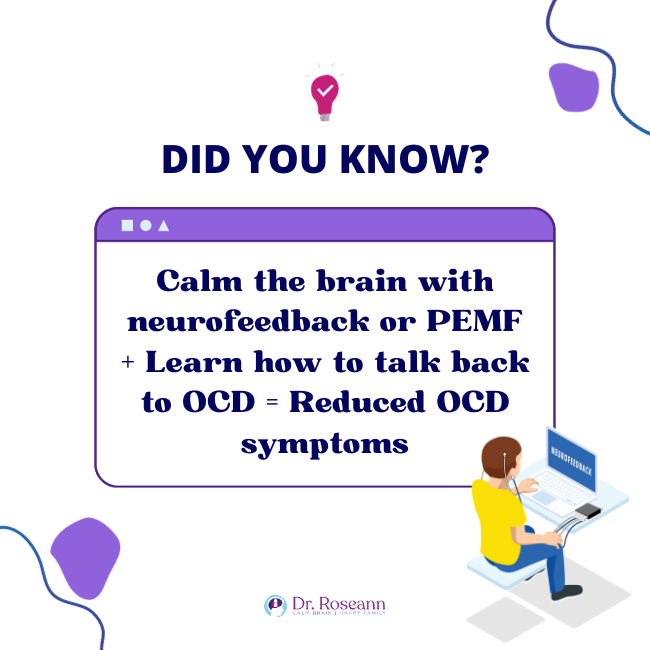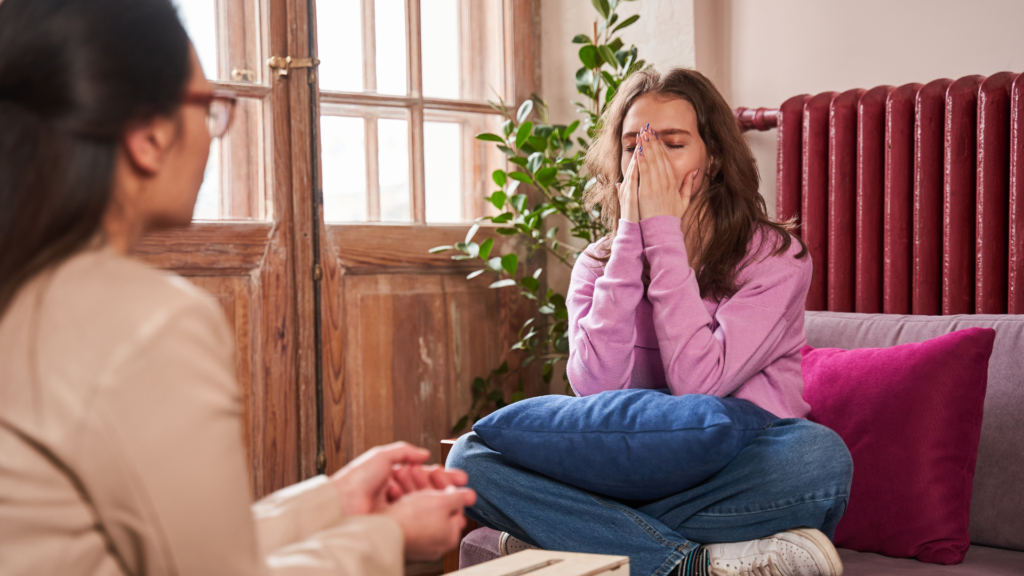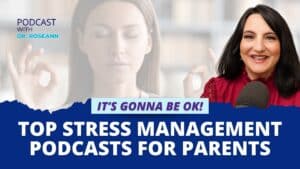Obsessive-Compulsive Disorder (OCD) is a complex mental health condition that manifests in various forms, and one such subtype is called Responsibility OCD. Let’s explore the distinctive features of this subtype of OCD, its impact on daily life, and the available treatment options for those affected by this disorder.
Responsibility OCD is characterized by intense anxiety and distress associated with an inflated sense of personal responsibility. Children and teens with this subtype experience obsessive thoughts that they may have failed in their responsibilities, which leads to harmful consequences. Its common theme is the fear of being a “bad person” or causing a negative outcome.
Understanding the symptoms, causes, and available treatment options is crucial for accurate diagnosis and effective management. With proper treatment, individuals with Responsibility OCD can learn new ways to navigate daily challenges and reduce the distress associated with their irrational beliefs and fears.
Common Responsibility OCD Symptoms

People with Responsibility OCD often grapple with ongoing intrusive thoughts about doing the wrong thing, leading to a heightened sense of responsibility for preventing bad things from happening. This can result in compulsive behaviors, such as checking and seeking reassurance, to alleviate the intense anxiety associated with these irrational beliefs. Here are some common signs and symptoms of Responsibility OCD:
Inflated Sense of Responsibility
People with Responsibility OCD have an excessive and irrational belief that they should feel responsible for preventing harm or negative outcomes. This sense of responsibility extends beyond what is reasonable in a given situation.
Obsessive Thoughts
Individuals experience persistent and distressing thoughts about potentially doing something wrong or causing harm to themselves or others. Such thoughts are intrusive, unwanted, and difficult to control.
Fear of Becoming a “Bad Person”
Responsibility OCD often involves an intense fear of moral or ethical failure. Individuals may worry excessively about being perceived as a “bad person” or causing harm, even if there is no real basis for such concerns. There is also a pervasive fear of making mistakes, no matter how minor, and a belief that any mistake could lead to catastrophic consequences.
Compulsive Checking
To alleviate anxiety, individuals may engage in compulsive checking behaviors. This could involve regular OCD-like behaviors like they repeatedly checking door locks, electrical appliances, or other items to ensure they have not overlooked something crucial. They also knock on wood to dispel bad luck.
Excessive Reassurance-Seeking
People with Responsibility OCD may seek reassurance from others to validate that they have not caused harm or made a mistake. This reassurance-seeking behavior can become a compulsive ritual.
Avoidance of Specific Actions
Due to the fear of negative consequences, OCD sufferers may avoid certain activities or responsibilities to prevent the perceived harm they believe they might cause (Starcevic et al., 2011).
Heightened Anxiety
Responsibility OCD is associated with a lot of anxiety and fear, which specific thoughts or situations can trigger. The anxiety is disproportionate to the actual level of danger in the situation.
Safety Behaviors
Individuals may develop safety behaviors or rituals as a way to prevent harm. These behaviors may include repetitive actions or mental rituals to neutralize unwanted thoughts. Engaging in safety behaviors could contribute to the onset of anxiety disorders and OCD. The use of safety behaviors may heighten one's perception of threats (Van Uijen & Toffolo, 2015).
Constant Need for Reassurance
The need for reassurance is a persistent aspect of Responsibility OCD, and individuals may seek validation from others repeatedly throughout the day. Responsibility OCD can significantly impact daily functioning, causing distress and impairment in various areas of life, such as work, relationships, and personal activities.
Causes, Diagnosis, and Treatment
The causes of Responsibility OCD are multifaceted, involving genetic, biological, and environmental factors. Stress and a person's level of sensitivity can play a role in triggering or exacerbating symptoms. Understanding these factors is crucial for an accurate diagnosis and proper treatment.
Diagnosing Responsibility OCD involves recognizing specific actions and mental behaviors associated with an excessive sense of responsibility. Mental health professionals play a pivotal role in conducting assessments and differentiating Responsibility OCD from other forms of OCD like harm OCD and contamination OCD, or even other mental health disorders. Co-occurring conditions, such as low self-esteem or fear of failure, may also need attention.
Treatment options for Responsibility OCD include Cognitive Behavior Therapy (CBT), particularly Exposure and Response Prevention (ERP) therapy. ERP involves exposing individuals to situations that trigger obsessive thoughts and preventing the accompanying compulsive behaviors. The more a person is exposed to triggers, the easier it is for them to handle their effects (Himle & Franklin, 2009).
Addressing the Struggles with Responsibility OCD

Living with Responsibility OCD can be challenging, impacting various aspects of daily life. Coping strategies, building a support system, and educating family members are essential components of managing this condition. Overcoming stigma and encouraging affected individuals to seek professional help are crucial steps in the journey toward OCD recovery.
Addressing misconceptions and stigma surrounding this subtype of obsessive compulsive disorder is vital. Individuals with Responsibility OCD may experience constant fear and a heightened sense of responsibility, making it imperative to raise awareness about this subtype. Seeking professional help from clinical psychologists or mental health services is the first step towards proper treatment.
The focus should be in teaching the individual to talk back to their OCD fears. They will need the support of loved ones in reinforcing coping skills and not accommodating the fear. Addressing OCD behaviorally with a combination of calming the nervous system with holistic treatments is how to overcome OCD.
Parent Action Steps
☐ Identify and acknowledge intrusive thoughts about their sense of hyper-responsibility.
☐ Learn and employ coping strategies to manage anxiety.
☐ Gradually confront avoided situations and responsibilities.
☐ Take the OCD Quiz to know possible treatments for your child.
☐ Use the Solutions Matcher to personalize Exposure and Response Prevention Therapy to treat OCD.
Citations
Himle, M. B., & Franklin, M. E. (2009). The More You Do It, the Easier It Gets: Exposure and Response Prevention for OCD. Cognitive and Behavioral Practice, 16(1), 29–39. https://doi.org/10.1016/j.cbpra.2008.03.002
Starcevic, V., Berle, D., Brakoulias, V., Sammut, P., Moses, K., Milicevic, D., & Hannan, A. (2011). The Nature and Correlates of Avoidance in Obsessive–Compulsive Disorder. Australian & New Zealand Journal of Psychiatry, 45(10), 871–879. https://doi.org/10.3109/00048674.2011.607632
Van Uijen, S. L., & Toffolo, M. B. J. (2015). Safety Behavior Increases Obsession-Related Cognitions About the Severity of Threat. Behavior Therapy, 46(4), 521–531. https://doi.org/10.1016/j.beth.2015.04.001
Dr. Roseann is a mental health expert who frequently is in the media:
- Insider: What is OCD?
- Single Care Controlling the uncontrollable: Living with OCD during a pandemic
- MomsCove How to Help a Child with Anxiety and OCD
- Holistic Counseling Podcast: Effective Treatments for OCD
- Epidemic Answers: Neurofeedback for ADHD, anxiety, OCD and mood
- Cai Grahm: Is it anxiety or OCD?
- BCIA: Calming the OCD Brain with Neurofeedback and ERP Therapy
- Hope for Anxiety and OCD: Sudden Onset OCD
- Integrative Practitioner: Integrative Approaches to Treating OCD
- HappiHuman: Is it an Eating Disorder or OCD
Are you looking for SOLUTIONS for your struggling child or teen?
Dr. Roseann and her team are all about science-backed solutions, so you are in the right place!
Dr. Roseann is a Children’s Mental Health Expert and Licensed Therapist who has been featured in/on hundreds of media outlets including The Mel Robbins Show, CBS, NBC, PIX11 NYC, Today, FORBES, CNN, The New York Times, The Washington Post, Business Insider, Women’s Day, Healthline, CNET, Parade Magazine and PARENTS. FORBES called her, “A thought leader in children’s mental health.”

She coined the terms, “Re-entry panic syndrome” and “eco-anxiety” and is a frequent contributor to media on mental health.
Dr. Roseann Capanna-Hodge has three decades of experience in working with children, teens and their families with attention-deficit hyperactivity disorder (ADHD), autism, concussion, dyslexia and learning disability, anxiety, Obsessive Compulsive Disorder (OCD), depression and mood disorder, Lyme Disease, and PANS/PANDAS using science-backed natural mental health solutions such as supplements, magnesium, nutrition, QEEG Brain maps, neurofeedback, PEMF, psychotherapy and other non-medication approaches.
She is the author of three bestselling books, It’s Gonna Be OK!: Proven Ways to Improve Your Child's Mental Health, The Teletherapy Toolkit, and Brain Under Attack. Dr. Roseann is known for offering a message of hope through science-endorsed methods that promote a calm brain.
Her trademarked BrainBehaviorResetⓇ Program and It’s Gonna be OK!Ⓡ Podcast has been a cornerstone for thousands of parents facing mental health, behavioral or neurodevelopmental challenges.
She is the founder and director of The Global Institute of Children’s Mental Health, Neurotastic™Brain Formulas and Dr. Roseann Capanna-Hodge, LLC. Dr. Roseann is a Board Certified Neurofeedback (BCN) Practitioner, a Board Member of the Northeast Region Biofeedback Society (NRBS), Certified Integrative Mental Health Professional (CIMHP) and an Amen Clinic Certified Brain Health Coach. She is also a member of The International Lyme Disease and Associated Disease Society (ILADS), The American Psychological Association (APA), Anxiety and Depression Association of America (ADAA) National Association of School Psychologists (NASP), International OCD Foundation (IOCDF).
© Roseann-Capanna-Hodge, LLC 2023










